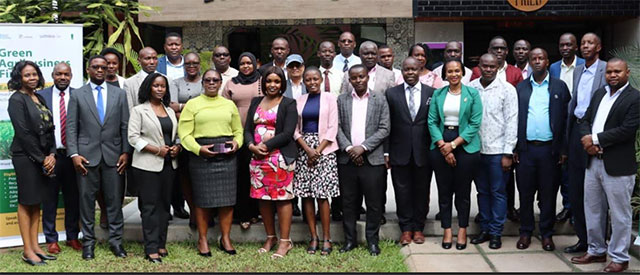Ugandan MFIs & SACCOs Boost Sustainability with aBi Finance's ESG Training

Kampala, Uganda – Uganda's leading microfinance institutions (MFIs) and Savings and Credit Cooperative Organisations (SACCOs) are gaining vital skills to embed Environmental, Social, and Governance (ESG) principles into their core operations. This crucial development comes thanks to a targeted training program spearheaded by aBi Finance, a prominent development finance institution.
Why ESG Matters for Ugandan Financial Institutions
The move towards incorporating ESG factors isn't just a trend; it's increasingly becoming a necessity. Globally, investors are demanding greater transparency and accountability regarding the environmental and social impact of their investments. For Ugandan MFIs and SACCOs, this means adapting to meet these expectations to secure funding, attract responsible investors, and ultimately, ensure long-term sustainability. ESG integration provides a framework to assess and manage risks related to climate change, social inequality, and governance practices, leading to more resilient and impactful financial services.
aBi Finance's Targeted Training Program
Recognising this growing need, aBi Finance has launched a comprehensive training program specifically designed to equip these Tier 4 financial institutions with the knowledge and practical tools needed to integrate ESG principles. The program covers a wide range of topics, including:
- Environmental Risk Assessment: Identifying and mitigating environmental risks associated with lending activities.
- Social Impact Measurement: Assessing the social impact of loans on communities and borrowers.
- Corporate Governance Best Practices: Strengthening governance structures and promoting ethical business conduct.
- ESG Reporting and Disclosure: Developing transparent reporting mechanisms to communicate ESG performance to stakeholders.
Benefits Beyond Funding: A Path to Sustainable Growth
The benefits of ESG integration extend far beyond securing funding. By embracing these principles, Ugandan MFIs and SACCOs can:
- Enhance Reputation: Build trust with customers, investors, and the wider community.
- Reduce Risks: Proactively manage environmental and social risks that could impact their operations.
- Improve Efficiency: Identify opportunities to reduce costs and improve resource utilization through sustainable practices.
- Drive Innovation: Develop new financial products and services that cater to the needs of environmentally and socially responsible borrowers.
Looking Ahead: A More Sustainable Financial Sector in Uganda
aBi Finance’s initiative represents a significant step towards building a more sustainable and resilient financial sector in Uganda. By empowering MFIs and SACCOs to embrace ESG principles, Uganda is positioning itself as a leader in responsible finance within the East African region. The program's success will not only benefit these institutions but will also contribute to broader economic and social development in the country. It signals a commitment to ensuring that financial growth is aligned with environmental protection and social equity.
[Include a relevant image here - e.g., a photo of the training session or a graphic illustrating ESG principles]





